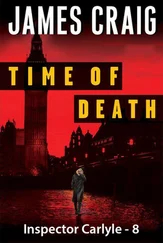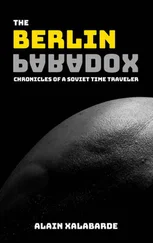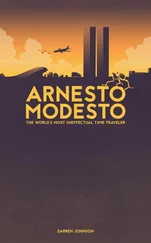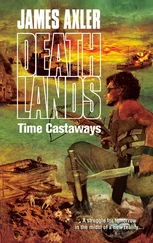James Gleick - Time Travel
Здесь есть возможность читать онлайн «James Gleick - Time Travel» — ознакомительный отрывок электронной книги совершенно бесплатно, а после прочтения отрывка купить полную версию. В некоторых случаях можно слушать аудио, скачать через торрент в формате fb2 и присутствует краткое содержание. Год выпуска: 2016, Издательство: Knopf Doubleday Publishing Group, Жанр: Старинная литература, на английском языке. Описание произведения, (предисловие) а так же отзывы посетителей доступны на портале библиотеки ЛибКат.
- Название:Time Travel
- Автор:
- Издательство:Knopf Doubleday Publishing Group
- Жанр:
- Год:2016
- ISBN:нет данных
- Рейтинг книги:5 / 5. Голосов: 1
-
Избранное:Добавить в избранное
- Отзывы:
-
Ваша оценка:
- 100
- 1
- 2
- 3
- 4
- 5
Time Travel: краткое содержание, описание и аннотация
Предлагаем к чтению аннотацию, описание, краткое содержание или предисловие (зависит от того, что написал сам автор книги «Time Travel»). Если вы не нашли необходимую информацию о книге — напишите в комментариях, мы постараемся отыскать её.
Time Travel — читать онлайн ознакомительный отрывок
Ниже представлен текст книги, разбитый по страницам. Система сохранения места последней прочитанной страницы, позволяет с удобством читать онлайн бесплатно книгу «Time Travel», без необходимости каждый раз заново искать на чём Вы остановились. Поставьте закладку, и сможете в любой момент перейти на страницу, на которой закончили чтение.
Интервал:
Закладка:
“Out of the Past” was the name of the store, and its products consisted of memories. What was prosaic and even vulgar to one generation had been transmuted by the mere passing of years to a status at once magical and also camp.
His time-slipping portal is not a machine or a house but Paris itself, the whole city, its past so exposed, at every street corner and flea market. To 1920 he goes, and there the modernists understand his sense of dislocation. “I’m from a different time—a whole other era—the future,” he explains. “I slide through time.” The surrealist Man Ray replies, “Exactly correct—you inhabit two worlds—so far I see nothing strange.” The film’s central joke is slowly revealed, and it is recursive, time slips within time slips. Nostalgia is eternal. If the twenty-first century yearns for the Jazz Age, the Jazz Age craves the Belle Époque—every age mourning the loss of another age. Woody Allen is neither the first nor the last to see it this way. “The present is always going to seem unsatisfying,” Gil learns, “because life itself is unsatisfying.”
Travel to the past begins as tourism in the extreme. Complications soon arise. The sightseers start tinkering. We barely learn to read history before we want to rewrite it. Here come the paradoxes—cause and effect going around in loops. Even Nesbit’s child heroes see this. When they meet Julius Caesar at his tent in Gaul, peering across the Channel toward Britain, they can’t resist trying to talk him out of dispatching his legions: “We want to ask you not to trouble about conquering Britain; it’s a poor little place, not worth bothering about.” This backfires, naturally. They end up talking him into it, because you can’t change history, and we have just witnessed the birth of a time-travel joke that will evolve into higher and higher forms. Thus, a full century after Nesbit, Woody Allen’s time traveler in Midnight in Paris meets the young Luis Buñuel and can’t resist trying to inspire the director with his own future movie.
GIL: Oh, Mr. Buñuel, I had a nice idea for a movie for you.
BUÑUEL: Yes?
GIL: Yeah, a group of people attend a very formal dinner party and at the end of dinner when they try to leave the room, they can’t.
BUÑUEL: Why not?
GIL: They just can’t seem to exit the door.
BUÑUEL: But, but why?
GIL: And because they’re forced to stay together the veneer of civilization quickly fades away and what you’re left with is who they really are—animals.
BUÑUEL: But I don’t get it. Why don’t they just walk out of the room?
When the future meets the past, the future has a knowledge advantage. Yet the past is not easily swayed. Mind you, we’re talking about our imaginations—the imaginations of professional imaginers, especially. “Time,” wrote the novelist Ian McEwan early in his career—“not necessarily as it is, for who knows that, but as thought has constituted it—monomaniacally forbids second chances.” The rules of time travel have been written not by scientists but by storytellers.
—
WHEN THEY DID start trying to change history, so many of them came up with the perfect plan. They tried to kill Hitler. They are still trying, to this day. It’s easy to see why. Others have done great evil and caused great suffering (Stalin, Mao…), but one man looms above the others with his combination of monstrosity and charisma. “Adolf Hitler. Hitler, Hitler, Hitler,” says Stephen Fry, in his time-travel novel, Making History. If only Hitler can be unmade. The entire twentieth century gets a do-over. The idea arose even before the United States entered the war: the July 1941 issue of Weird Tales featured a story called “I Killed Hitler” by Ralph Milne Farley, pseudonym for a Massachusetts politician and pulp writer, Roger Sherman Hoar. An American painter resents the German dictator for several reasons and goes back in time to wring the neck of ten-year-old Adolf. (Surprise: the result, when he returns to the present, is not what he expected.) By the end of the 1940s, Hitler’s death at the hands of time travelers was already a meme. It is taken for granted in “Brooklyn Project,” a 1948 story by Philip Klass, publishing under the name William Tenn. The Brooklyn Project is a secret government experiment in time travel. “As you know,” an official explains, “one of the fears entertained about travel to the past was that the most innocent-seeming acts would cause cataclysmic changes in the present. You are probably familiar with the fantasy in its most currently popular form—if Hitler had been killed in 1930.” Impossible, he explains. Scientists have proven beyond doubt that time is “a rigid affair, past, present, and future, and nothing in it could be altered.” He keeps saying so, even as the project’s time-traveling “chronar” makes its way into prehistory and he and his listeners fail to notice that they are now slimy bloated creatures waving purple pseudopods.
Stephen Dedalus says memorably in Ulysses that history is a nightmare from which he is trying to awake. Is there no escape? What if Julius Caesar had not been murdered on the Senate steps, or Pyrrhus killed in Argos? “Time has branded them,” thinks Stephen, “and fettered they are lodged in the room of the infinite possibilities they have ousted. But can those have been possible seeing that they never were? Or was that only possible which came to pass? Weave, weaver of the wind.”
Can these eager assassins change history or can’t they? For a while, every new story seemed to offer a new theory. Alfred Bester, a New York PR man turned sci-fi writer, invented his own special variation of you can’t change history for his 1958 story, “The Men Who Murdered Mohammed.” The unhappy protagonist, Henry Hassel, angered by discovering his wife “in the arms of” another man, goes on an ever-more-murderous rampage through history, armed with his time machine and a .45-caliber pistol, killing parents and grandparents and historical figures near and far, Columbus, Napoleon, Mohammed (everyone but Hitler), and nothing seems to work. The wife continues in her merry ways. Why? Another sad time traveler finally explains:
“My boy, time is entirely subjective. It’s a private matter….We each travel into our own past, and no other person’s. There is no universal continuum, Henry. There are only billions of individuals, each with his own continuum; and one continuum cannot affect the other. We’re like millions of strands of spaghetti in the same pot….Each of us must travel up and down his strand alone.”
From branching paths to spaghetti strands.
In Stephen Fry’s variation, the hero is a student historian named Michael Young. (One wonders—why do our imaginative time-travel writers keep naming their characters Young ?) In this variation, he hopes to change history not by assassinating Hitler but by sterilizing his father: “The historian as God. I know so much about you, Mr. So-Called Hitler, that I can stop you from being born.” And then? Will the twentieth century live happily ever after? (“It was insane of course. I knew that. It couldn’t possibly work. You can’t change the past. You can’t redesign the present.”) All you can do is ask, What if? The novelist makes the world. Kate Atkinson’s 2013 novel, Life After Life, changes the rules yet again. The shooting of Hitler comes in the opening scene: our heroine, Ursula Todd (surname death this time) fires her father’s old service revolver at the Führer across the table in a Munich café in 1930. Then she dies, and she keeps on dying, again and again, at different ages, in different ways, always starting over and trying to do it right. Her alternative lives are like strands of spaghetti in a pot. “History is all about ‘what ifs,’ ” someone tells her, as if she didn’t know. Someone else urges, “We must bear witness…we must remember these people when we are safely in the future.” Atkinson, the author, said later, “I am in that future now, and I suppose this book is my bearing witness to the past.”
Читать дальшеИнтервал:
Закладка:
Похожие книги на «Time Travel»
Представляем Вашему вниманию похожие книги на «Time Travel» списком для выбора. Мы отобрали схожую по названию и смыслу литературу в надежде предоставить читателям больше вариантов отыскать новые, интересные, ещё непрочитанные произведения.
Обсуждение, отзывы о книге «Time Travel» и просто собственные мнения читателей. Оставьте ваши комментарии, напишите, что Вы думаете о произведении, его смысле или главных героях. Укажите что конкретно понравилось, а что нет, и почему Вы так считаете.












